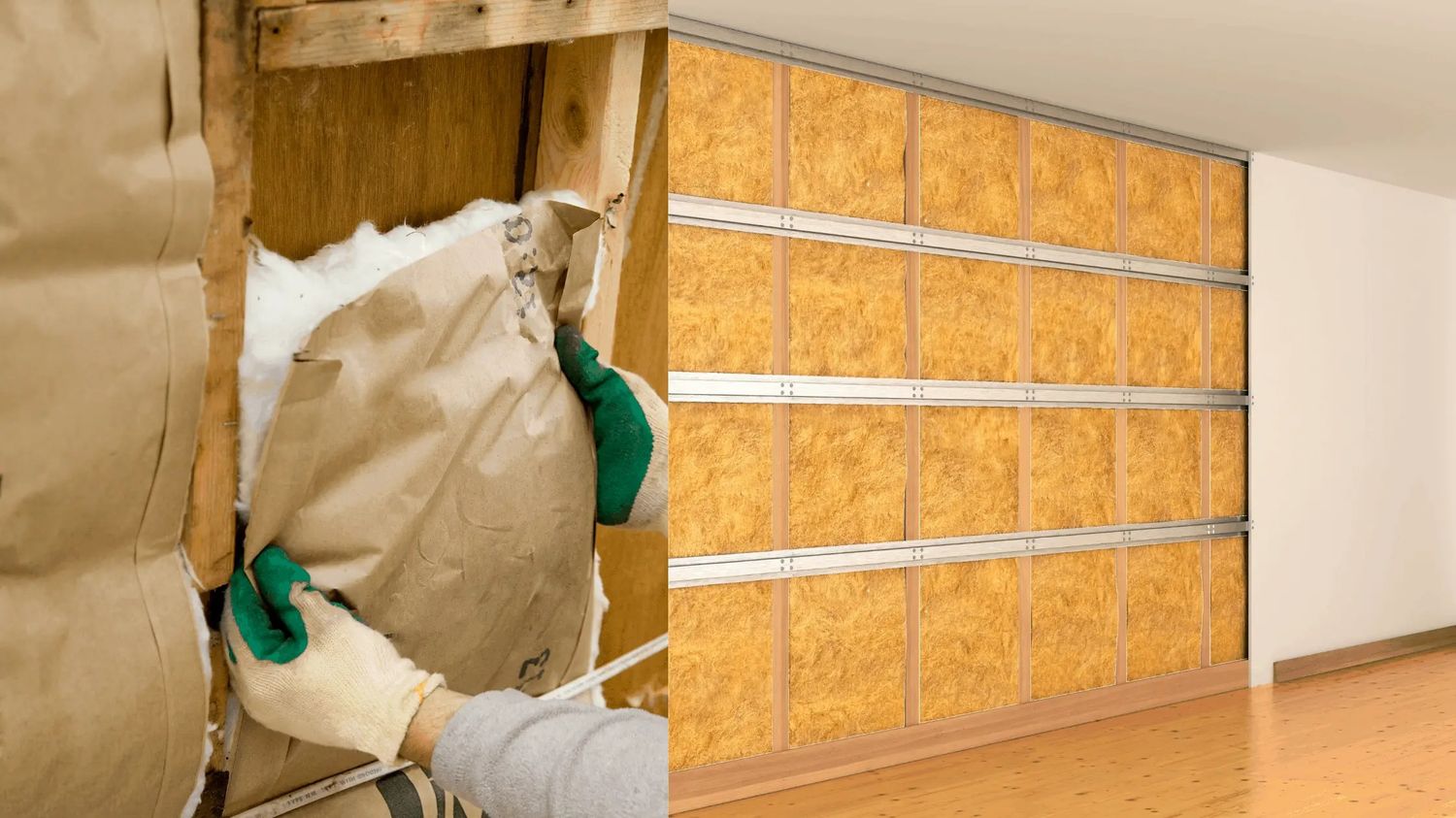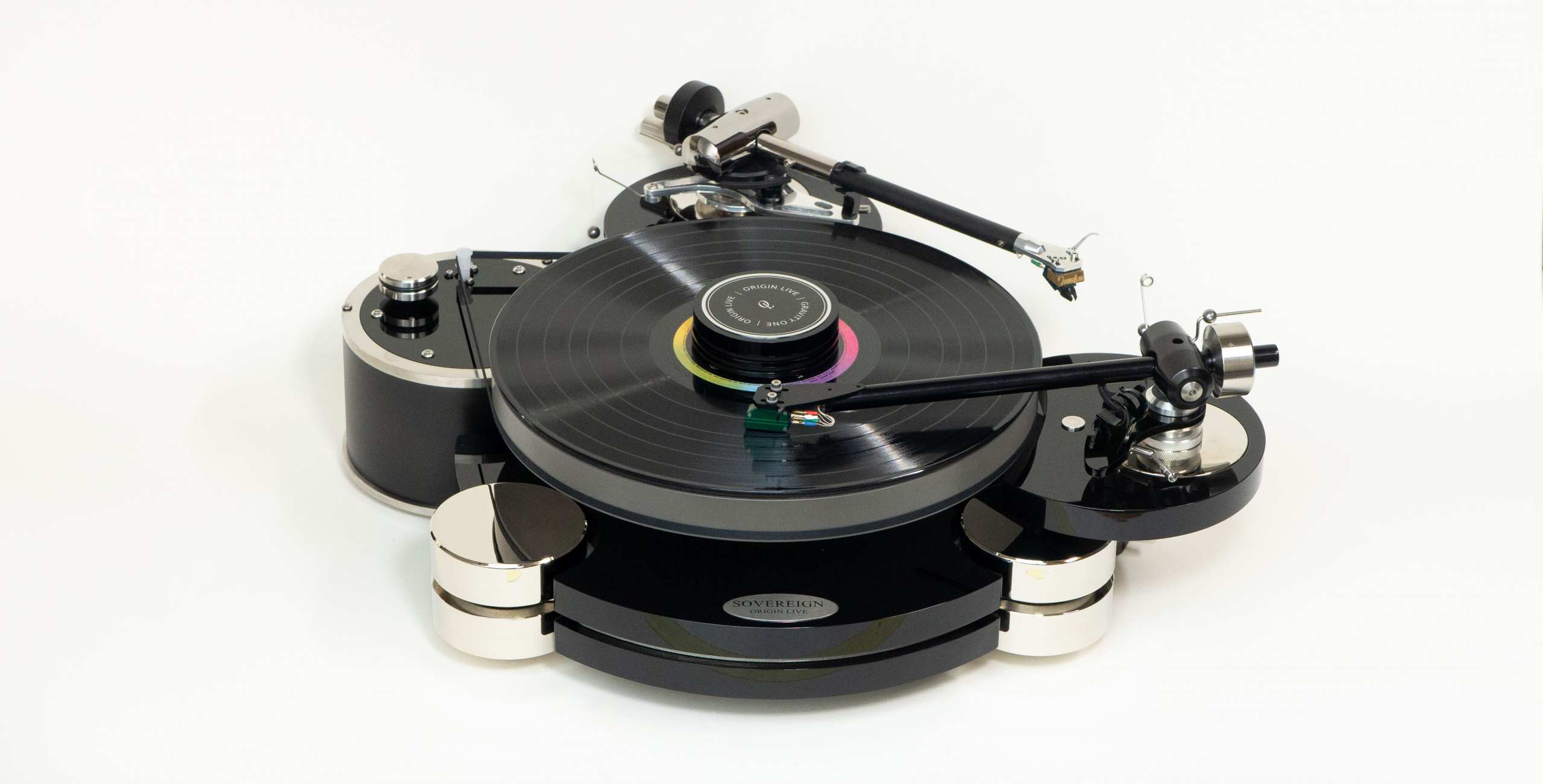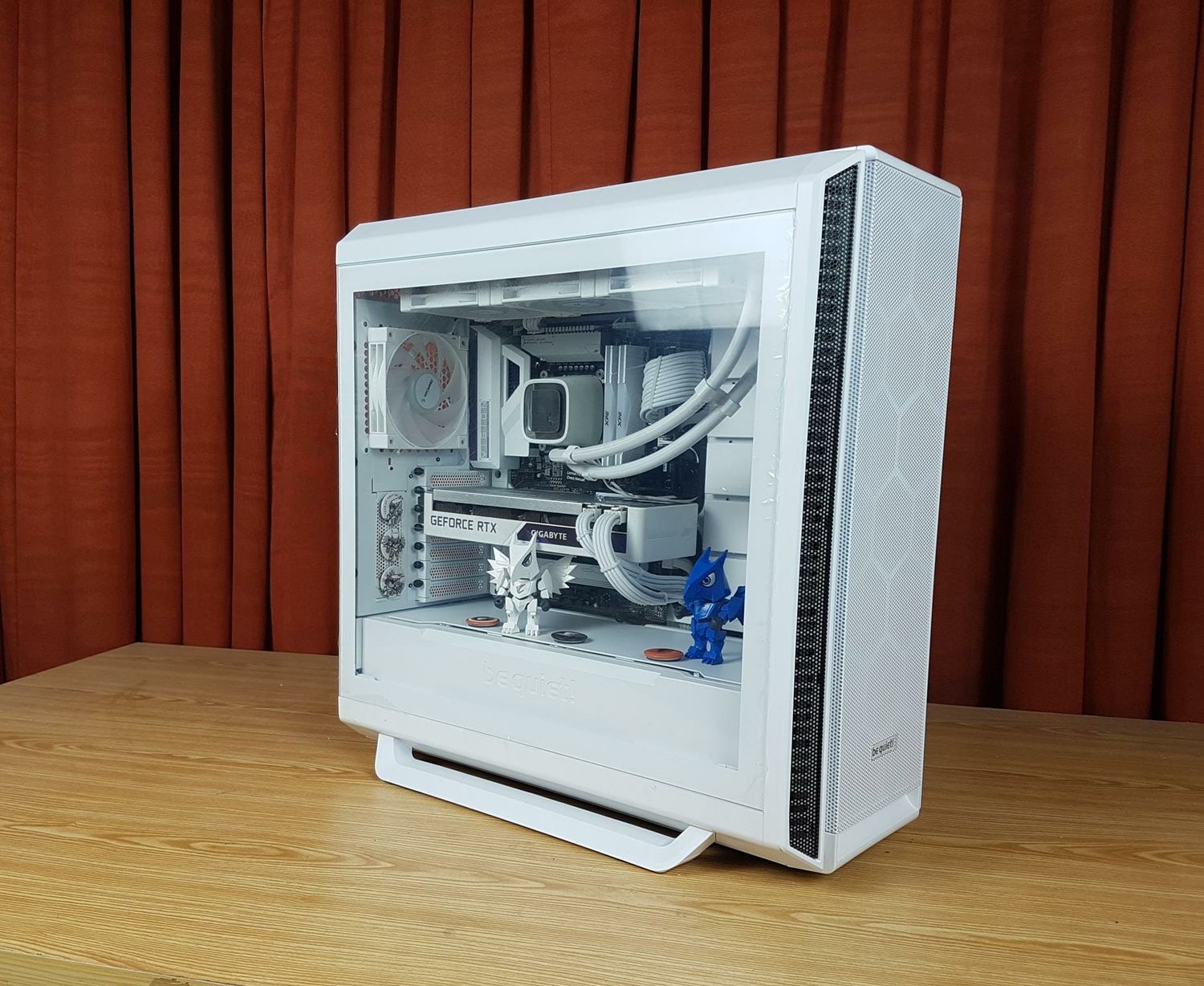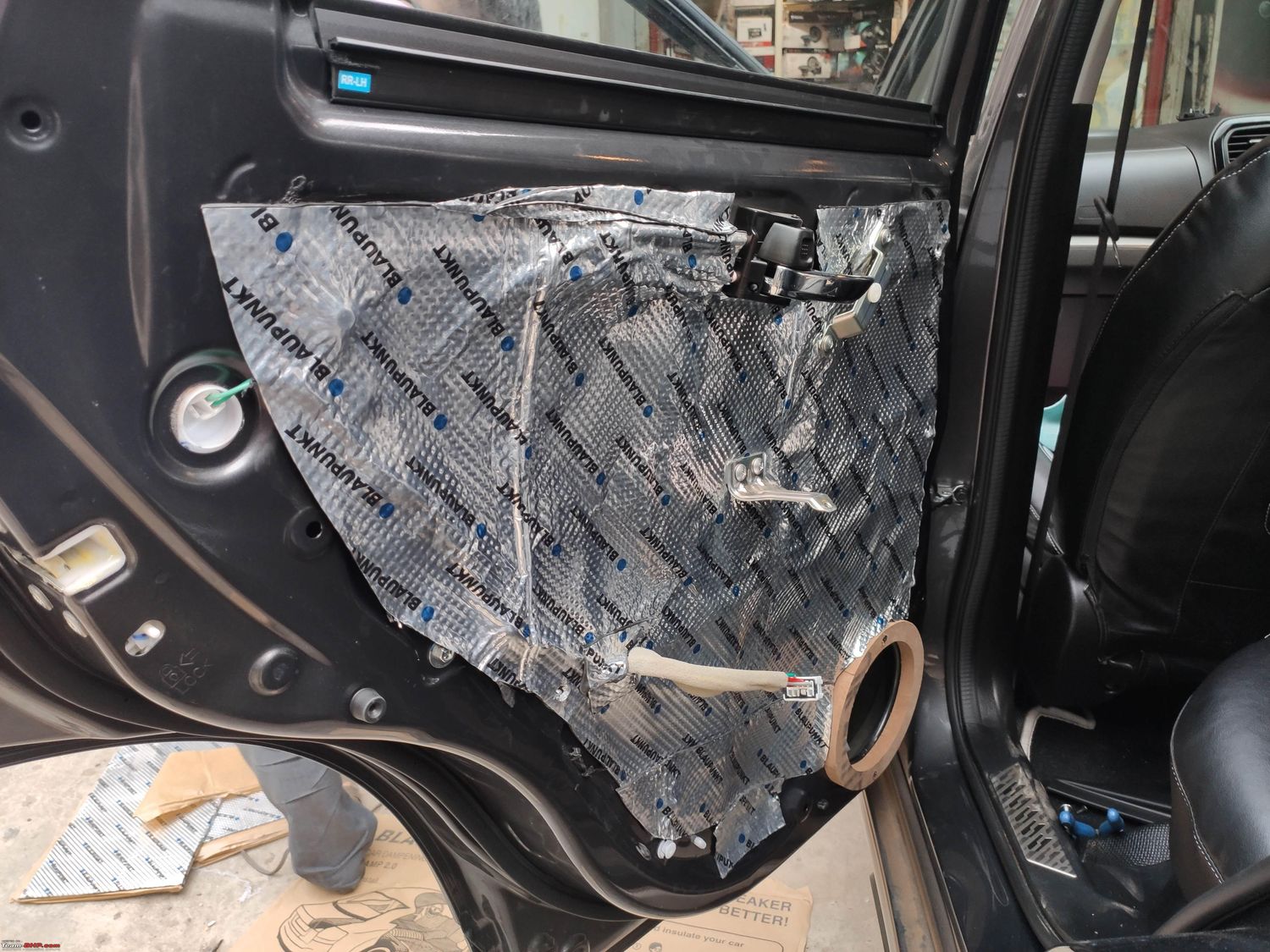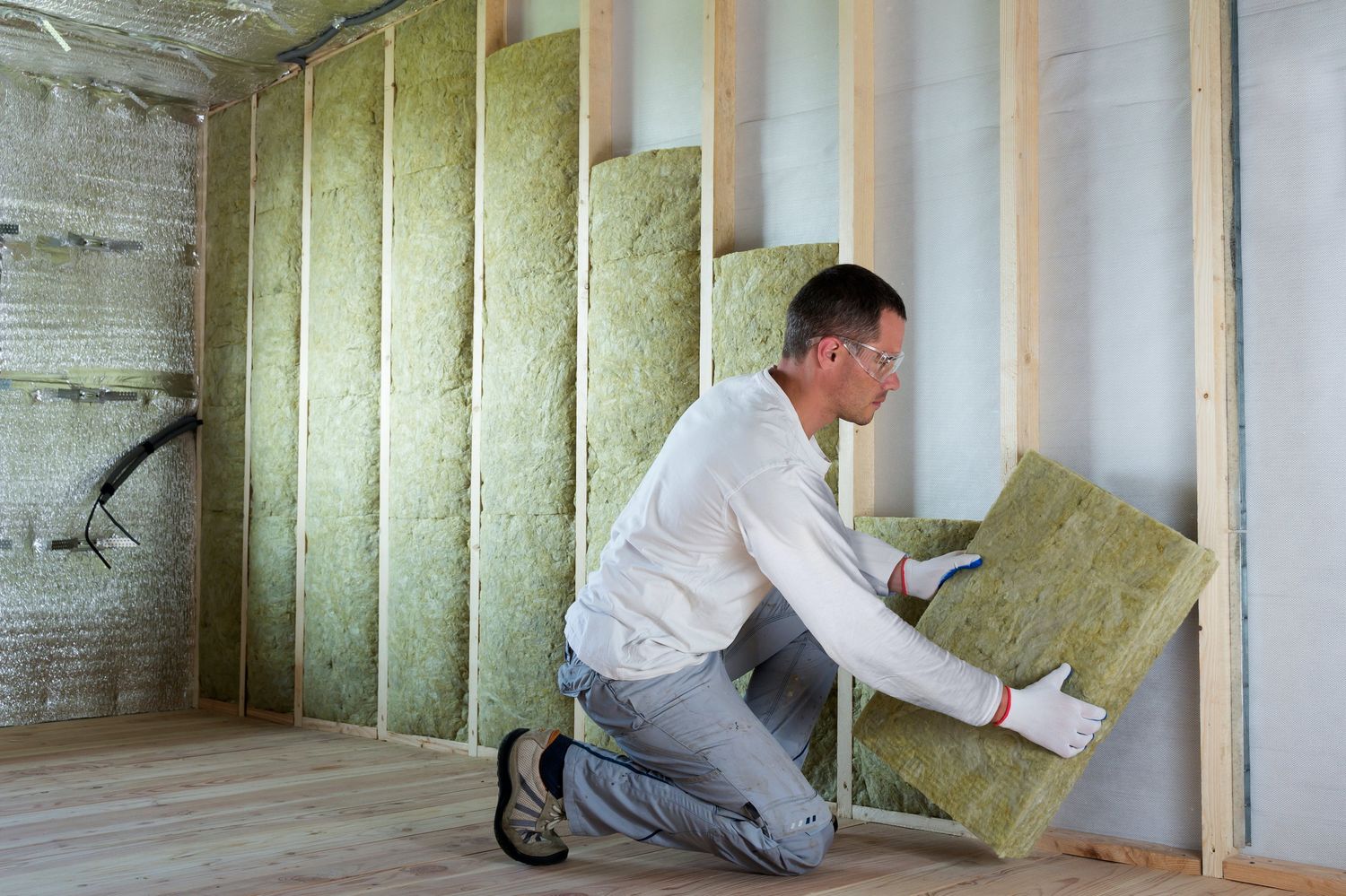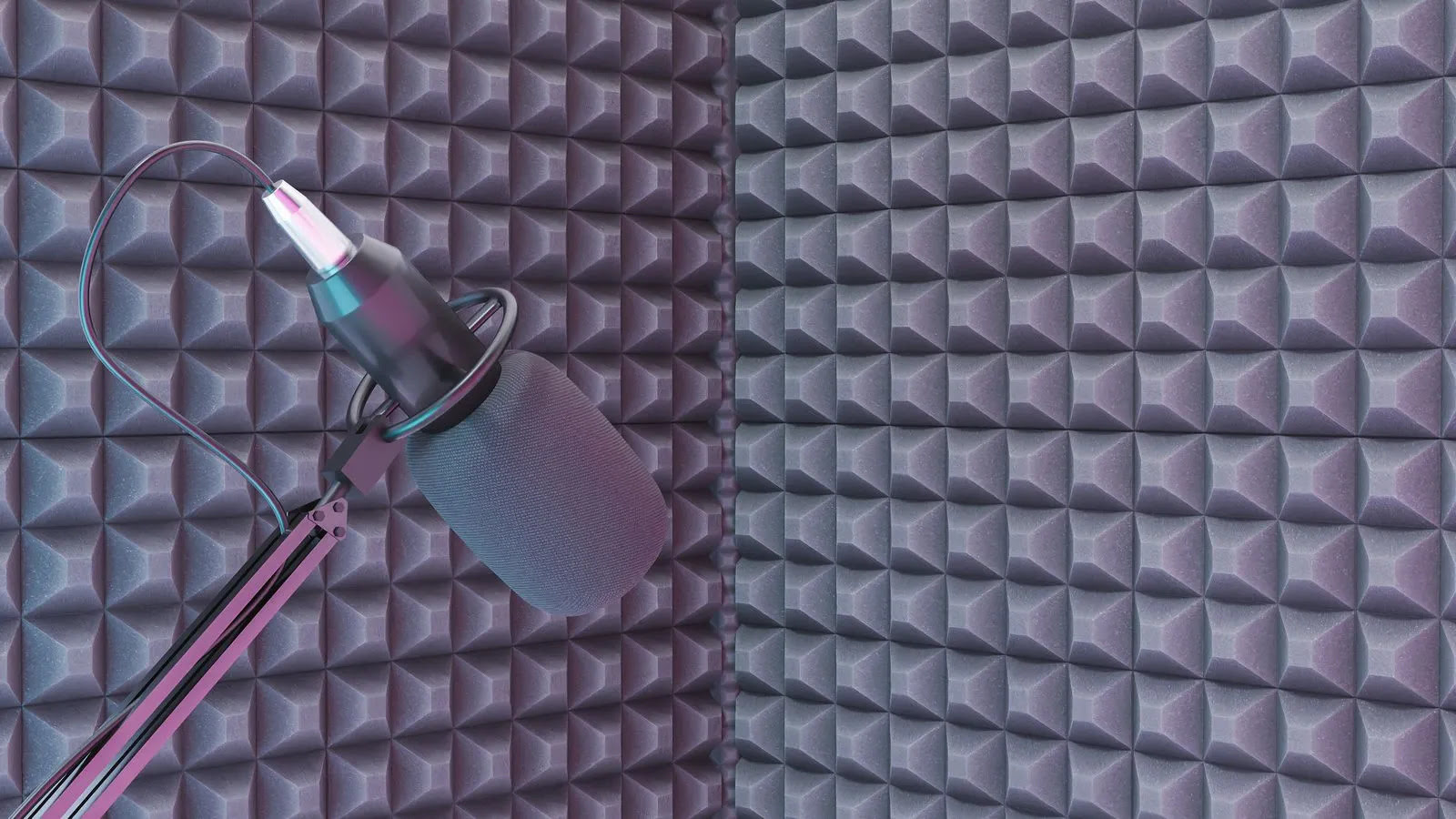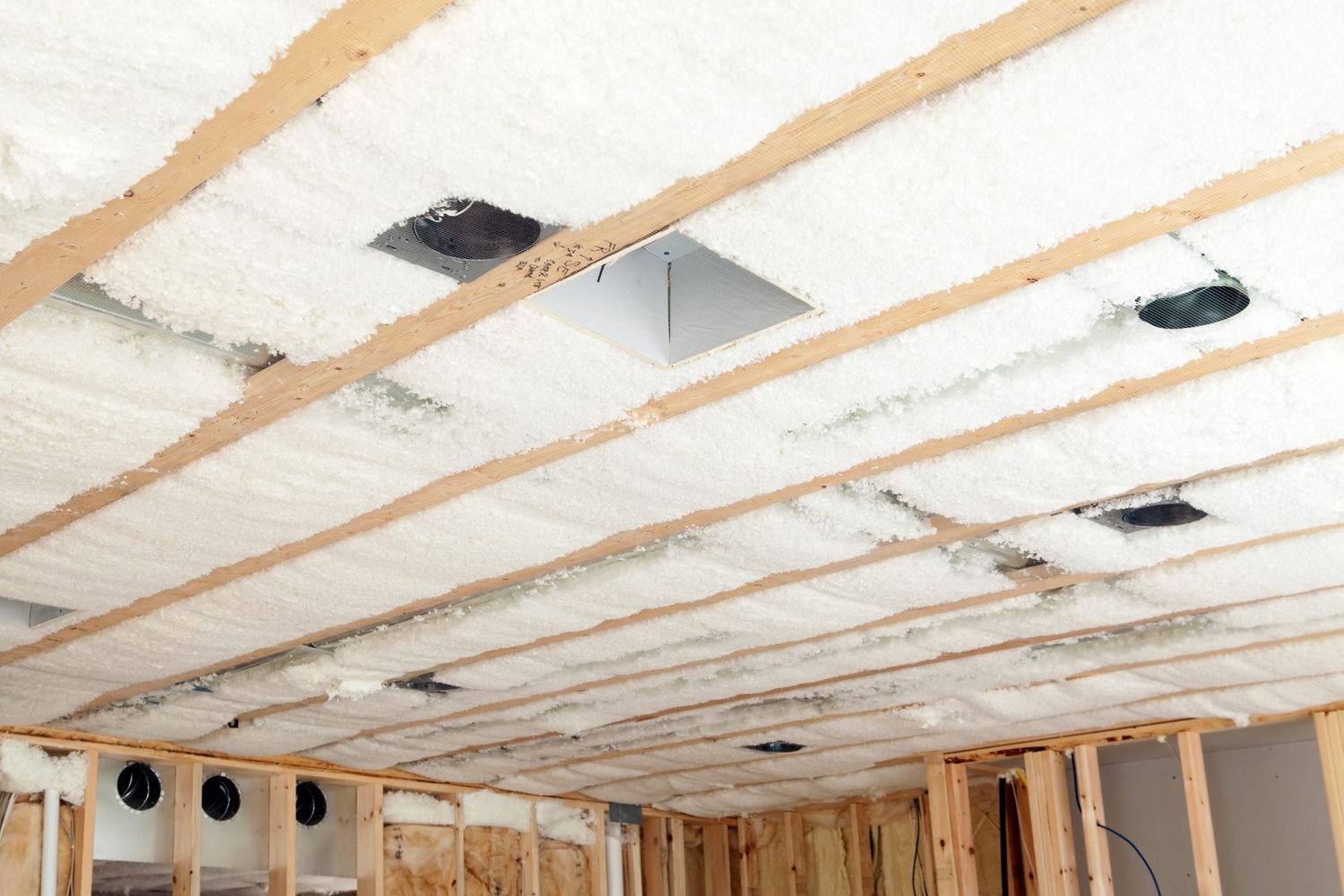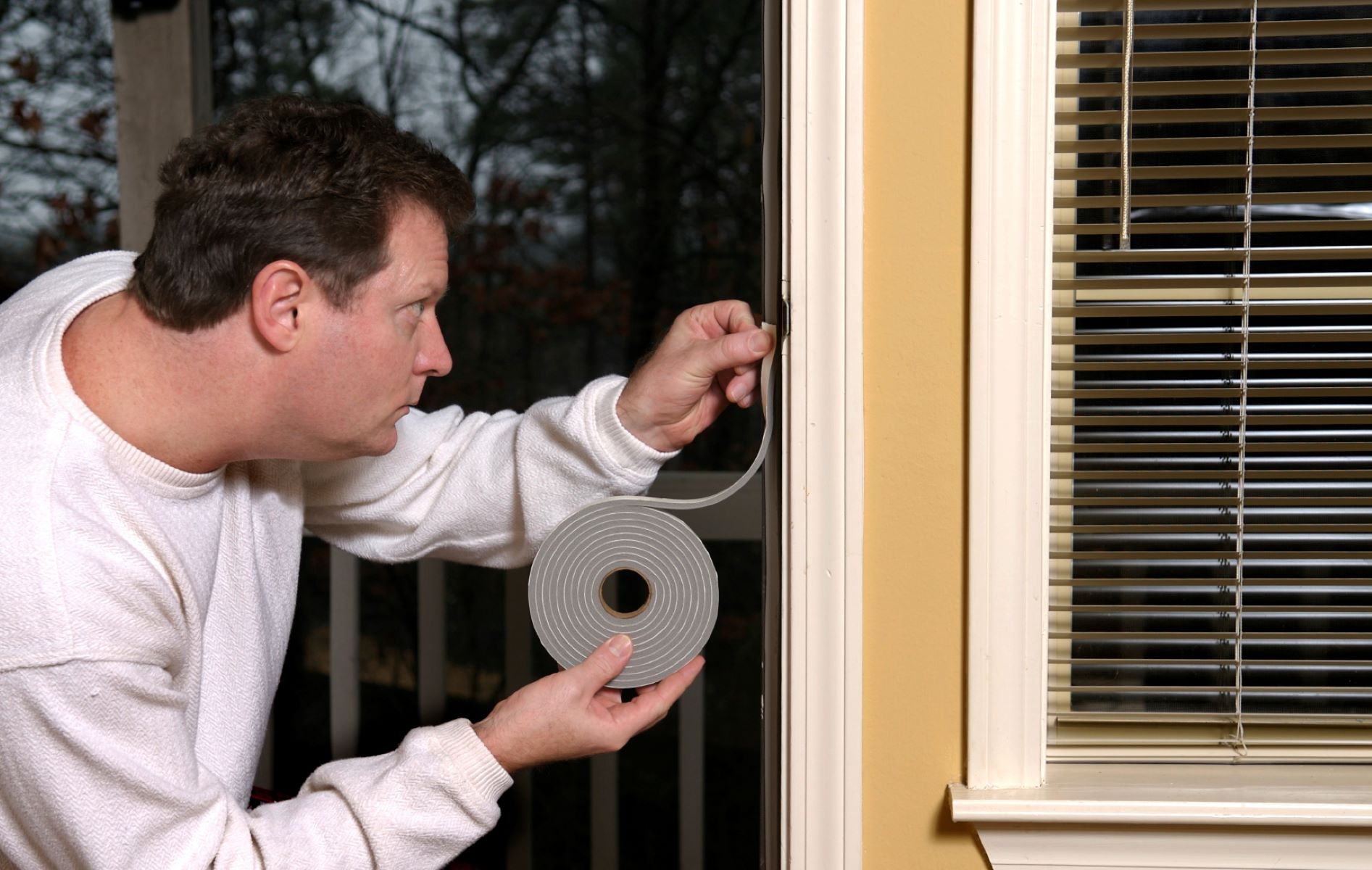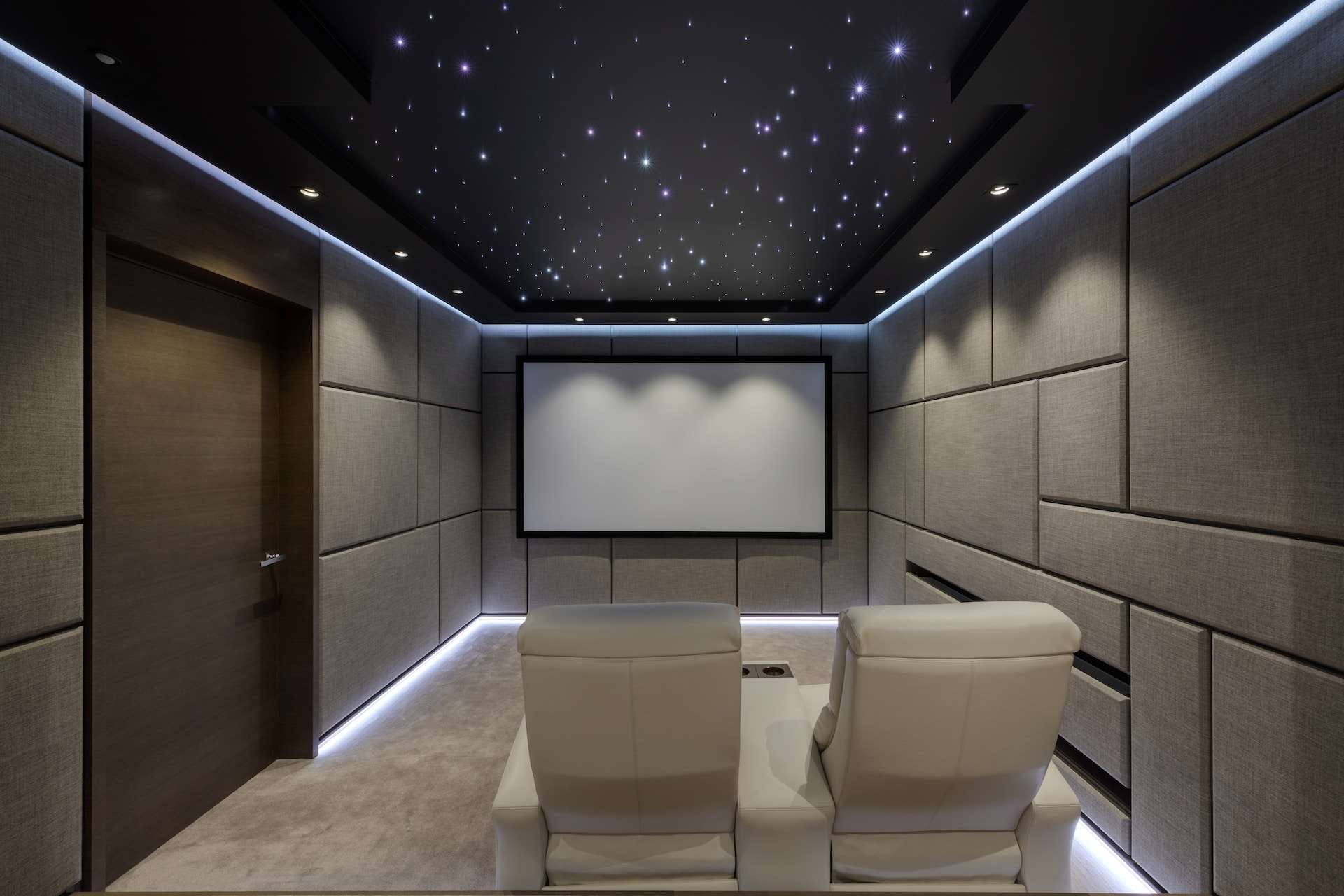Home>Production & Technology>Soundproofing>Which Carpet Is Best For Soundproofing
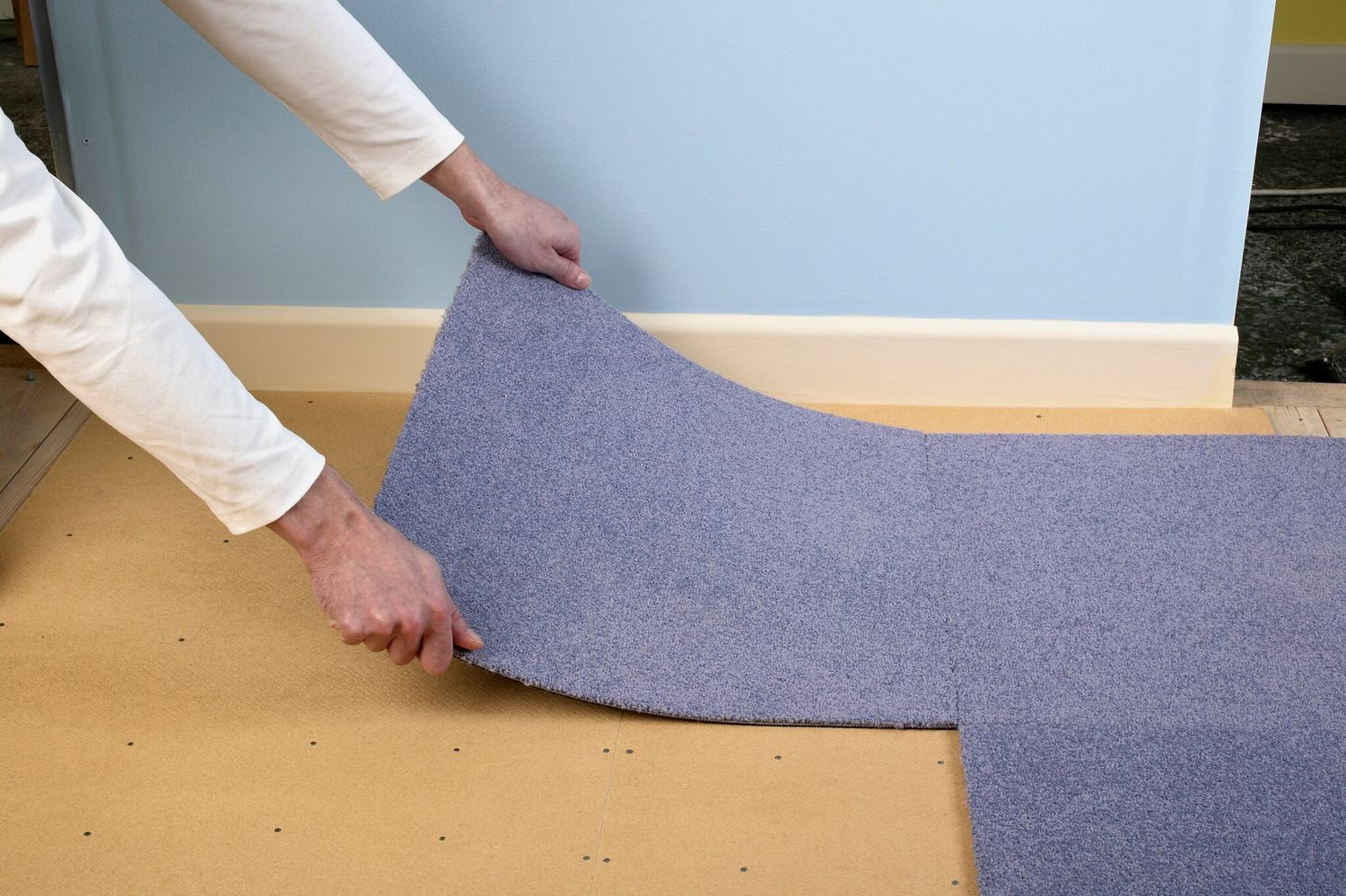

Soundproofing
Which Carpet Is Best For Soundproofing
Published: January 26, 2024
Looking for the best carpet for soundproofing? Discover the top options for reducing noise and creating a quieter space with our expert guide.
(Many of the links in this article redirect to a specific reviewed product. Your purchase of these products through affiliate links helps to generate commission for AudioLover.com, at no extra cost. Learn more)
Table of Contents
- Introduction
- Understanding Soundproofing
- Importance of Choosing the Right Carpet
- Factors to Consider When Selecting a Soundproofing Carpet
- Types of Carpets for Soundproofing
- Wool Carpets
- Nylon Carpets
- Synthetic Carpets
- Berber Carpets
- Installation Tips for Soundproofing Carpets
- Maintaining and Cleaning Soundproofing Carpets
- Conclusion
Introduction
When it comes to creating a peaceful and tranquil environment in your home or office, soundproofing is a critical consideration. Excessive noise can be a major source of stress and disturbance, affecting our well-being and productivity. Fortunately, there are various solutions available to minimize noise transmission, one of which is using soundproofing carpets.
Soundproofing carpets are specially designed to absorb and reduce noise, making them an excellent addition to any space where sound control is essential. Whether you live on a busy street, have noisy neighbors, or work in a bustling office, investing in a soundproofing carpet can significantly enhance your overall acoustic experience.
In this article, we will explore the importance of choosing the right carpet for soundproofing purposes and discuss the various factors to consider when selecting a soundproofing carpet. We will also delve into the different types of carpets available and provide installation tips to help you achieve the best soundproofing results. Additionally, we will touch on maintenance and cleaning practices to ensure the longevity and effectiveness of your soundproofing carpet.
By the end of this article, you will have a comprehensive understanding of soundproofing carpets and be equipped with the knowledge to make an informed decision when it comes to enhancing the acoustic quality of your space.
Understanding Soundproofing
Soundproofing is the process of reducing and controlling the transmission of sound from one space to another. It involves the use of materials and techniques that absorb, deflect, or isolate sound waves to minimize their impact on the surrounding environment. Effective soundproofing helps create a quieter and more peaceful interior, free from unwanted noise disturbances.
Soundproofing works by addressing the three main principles of sound transmission: absorption, isolation, and damping. Absorption involves the use of materials that absorb sound waves, preventing them from bouncing off surfaces and reflecting back into the room. Isolation refers to creating physical barriers or structures that block the path of sound waves and prevent them from traveling between spaces. Damping involves reducing vibrations and resonances that can amplify sound waves and contribute to noise transmission.
When it comes to soundproofing carpets, their primary role is to absorb and dampen sound. The materials and construction of the carpet are designed to effectively trap and reduce sound waves, preventing them from bouncing around the room and entering adjacent spaces.
It’s important to note that while soundproofing carpets can significantly reduce airborne noise, they may not completely eliminate impact noise, such as footsteps or moving furniture. However, they can still help to minimize the impact noise to a certain extent.
By understanding how sound travels and the principles of soundproofing, you can make informed decisions about the materials and techniques to incorporate in your space to achieve the desired level of sound control and create a more peaceful and comfortable environment.
Importance of Choosing the Right Carpet
Choosing the right carpet for soundproofing purposes is crucial for achieving optimal noise reduction and creating a quiet and peaceful environment. The carpet you select can make a significant difference in the overall effectiveness of your soundproofing efforts. Here are some key reasons why choosing the right carpet is important:
1. Noise Reduction
A soundproofing carpet is specifically designed to absorb and reduce noise. The right carpet can effectively minimize the transmission of airborne sounds, such as footsteps, conversations, or outside noises, thereby creating a quieter and more comfortable space. This is particularly important in areas where noise control is essential, such as bedrooms, living rooms, home offices, or commercial spaces.
2. Enhanced Acoustic Experience
By selecting the right carpet, you can enhance the overall acoustic experience in the room. The proper carpet can help to dampen echoes and reverberations, improving the clarity of speech and sound quality within the space. This is particularly beneficial in rooms with hard surfaces, such as tile or hardwood floors, where sound waves tend to bounce and create unwanted echoes.
3. Improved Comfort and Insulation
A soundproofing carpet not only reduces noise but also adds an extra layer of insulation to your space. Carpets have natural thermal properties that can help reduce heat loss, making the room more energy-efficient and comfortable. Additionally, carpets provide a soft and comfortable surface underfoot, enhancing the overall comfort and coziness of the space.
4. Aesthetic Appeal
Choosing the right carpet allows you to enhance the aesthetic appeal of your space. With a wide variety of colors, patterns, and textures available, you can select a carpet that complements your interior design and adds warmth and style to the room. The right carpet can be a visually pleasing addition to your space while also providing soundproofing benefits.
Overall, selecting the right carpet for soundproofing is essential to achieve the desired level of noise reduction, improve the acoustic experience, enhance comfort and insulation, and create a visually appealing space. Take the time to research and consider the various factors involved in carpet selection to ensure you make an informed decision that meets your soundproofing and aesthetic needs.
Factors to Consider When Selecting a Soundproofing Carpet
Choosing the right soundproofing carpet involves considering several key factors to ensure optimal noise reduction and performance. Here are some important factors to consider when selecting a soundproofing carpet:
1. Material
The material of the carpet plays a significant role in its soundproofing capabilities. Look for carpets made from dense and thick materials as these provide better noise absorption. Wool and nylon carpets are popular choices for soundproofing due to their excellent acoustic properties. Synthetic carpets can also offer good soundproofing if they have a high-density construction.
2. Pile Height and Density
The pile height and density of the carpet impact its ability to absorb and dampen sound. Carpets with longer pile heights and high density tend to be more effective at reducing noise compared to shorter and less dense carpets. Consider opting for carpets with a thick and tightly woven pile for better soundproofing performance.
3. Underlay/Padding
The underlay or padding placed beneath the carpet can significantly enhance its soundproofing capabilities. Choose a high-quality underlay with good sound insulation properties. Look for materials like rubber or foam that can effectively absorb and reduce impact noise.
4. Carpet Construction
The construction of the carpet can affect its soundproofing performance. Consider loop pile carpets, such as Berber carpets, as they have a dense and low-profile construction that can effectively absorb sound. Avoid carpets with excessive pile height variation or loose construction, as they may not provide the desired level of noise reduction.
5. Noise Reduction Coefficient (NRC)
Check the Noise Reduction Coefficient (NRC) rating of the carpet. NRC is a measure of a material’s ability to absorb sound. Look for carpets with a higher NRC rating, as they have better sound-absorption properties. Carpets with an NRC rating of 0.5 or higher are considered to have good soundproofing capabilities.
6. Durability and Maintenance
Consider the durability and maintenance requirements of the carpet. Ensure that the carpet is designed to withstand high-traffic areas and regular wear and tear. Additionally, choose a carpet that is easy to clean and maintain to ensure its longevity and continued soundproofing performance.
By considering these factors when selecting a soundproofing carpet, you can choose a carpet that best meets your noise reduction needs and enhances the acoustic experience and comfort of your space.
Types of Carpets for Soundproofing
When it comes to selecting a carpet for soundproofing, there are various types available, each with its own unique properties and advantages. Here are some common types of carpets for soundproofing:
1. Wool Carpets
Wool carpets are highly regarded for their excellent sound-absorption properties. The natural fibers in wool carpets have a dense structure that effectively absorbs and reduces noise. Wool carpets also have the added benefit of being environmentally friendly and hypoallergenic. They are durable and can withstand heavy foot traffic while maintaining their soundproofing capabilities.
2. Nylon Carpets
Nylon carpets are another popular choice for soundproofing. They have a dense and resilient construction that provides good noise reduction. Nylon carpets are known for their durability and resistance to stains, making them a practical option for high-traffic areas. They are available in a wide range of colors and styles, allowing you to customize the look of your space.
3. Synthetic Carpets
Synthetic carpets, such as polyester or polypropylene carpets, offer an affordable option for soundproofing. While they may not have the same level of sound-absorption as wool or nylon carpets, they can still provide reasonable noise reduction. Synthetic carpets are known for their stain-resistant properties and are relatively easy to maintain.
4. Berber Carpets
Berber carpets are a type of loop pile carpet that is well-suited for soundproofing. They have a dense, low-profile construction that effectively absorbs noise. Berber carpets are durable and resistant to wear, making them a suitable choice for high-traffic areas. They come in various colors and patterns, adding a stylish touch to your space while reducing noise.
When choosing the type of carpet for soundproofing, consider your specific needs, budget, and aesthetic preferences. It’s also essential to assess the noise control requirements of your space to determine which type of carpet will provide the best soundproofing performance.
Wool Carpets
Wool carpets are widely recognized for their exceptional soundproofing properties and have been a popular choice for sound control in residential and commercial spaces. Here are some key features and benefits of wool carpets for soundproofing:
Excellent Sound Absorption
Wool fibers have natural acoustic properties that make them highly effective at absorbing and dampening noise. The dense structure of wool carpets helps to trap and reduce airborne sounds, such as footsteps, voices, and outside noise. This can significantly improve the overall acoustic experience and create a quieter and more peaceful environment.
Durability and Longevity
Wool carpets are known for their durability and longevity. The fibers are inherently strong and resilient, allowing the carpet to withstand heavy foot traffic and maintain its soundproofing capabilities over time. This makes wool carpets a wise investment for areas that experience high use, such as hallways, living rooms, or offices.
Hypoallergenic and Environmentally Friendly
Wool is a natural material that is hypoallergenic, making it an excellent choice for individuals with allergies or sensitivities. Wool fibers have natural resistance to dust mites, mold, and mildew, ensuring a healthier indoor environment. Additionally, wool is a sustainable and renewable resource, making wool carpets an environmentally friendly option for soundproofing.
Thermal Insulation
Wool carpets provide excellent thermal insulation, helping to keep your space warm and energy-efficient. The natural air pockets within the wool fibers act as insulation, reducing heat loss and improving energy efficiency. This can result in reduced heating costs during colder months.
Style and Versatility
Wool carpets come in a wide range of colors, patterns, and textures, allowing you to find the perfect fit for your interior design aesthetic. From cozy and traditional to sleek and modern, wool carpets offer versatility in style and can effortlessly enhance the overall look and feel of your space.
While wool carpets for soundproofing can be a slightly higher investment compared to other options, their superior sound-absorption qualities, durability, environmental benefits, and aesthetic appeal make them a worthwhile choice for those seeking optimal noise reduction and long-term performance.
Nylon Carpets
Nylon carpets are a popular choice for soundproofing due to their excellent noise reduction capabilities and durability. Here are some key features and benefits of nylon carpets for soundproofing:
Effective Noise Reduction
Nylon carpets have a dense and resilient construction that effectively absorbs and reduces noise. The tightly woven fibers of nylon carpets help to trap sound waves, preventing them from bouncing around the room and entering adjacent spaces. This results in a quieter and more peaceful environment.
Durability and Resilience
Nylon carpets are known for their exceptional durability and resilience. They can withstand heavy foot traffic, making them suitable for areas prone to high use, such as hallways, living rooms, and commercial spaces. Nylon carpets are also resistant to wear and abrasion, ensuring that they maintain their soundproofing capabilities over time.
Stain and Soil Resistance
Nylon carpets are treated with stain-resistant coatings, making them highly resistant to spills and stains. This feature is especially beneficial in areas where accidents or spills are likely to occur, such as dining rooms or playrooms. The stain resistance of nylon carpets also makes them easy to clean and maintain, ensuring their longevity and continued soundproofing performance.
Wide Range of Styles and Colors
Nylon carpets offer a wide variety of styles, colors, and patterns to choose from, allowing you to find the perfect carpet to complement your interior design. Whether you prefer a plush, luxurious feel or a more textured look, nylon carpets offer versatility in terms of aesthetics.
Affordability
Compared to some other types of carpets, nylon carpets are often more affordable, making them a cost-effective option for soundproofing. Their combination of durability, noise reduction capabilities, and affordability makes them a popular choice for both residential and commercial applications.
Overall, nylon carpets provide a practical and effective solution for soundproofing, offering durability, stain resistance, and a wide range of design options. Consider nylon carpets if you’re looking for a cost-effective way to reduce noise and create a quieter and more comfortable space.
Synthetic Carpets
Synthetic carpets, such as polyester or polypropylene carpets, are a popular choice for soundproofing due to their affordability and reasonable noise reduction capabilities. Here are some key features and benefits of synthetic carpets for soundproofing:
Cost-Effective Option
Synthetic carpets are often more affordable compared to other types of carpets, making them a cost-effective option for soundproofing purposes. If you have a limited budget but still want to reduce noise in your space, synthetic carpets can be a viable choice.
Reasonable Noise Reduction
While synthetic carpets may not offer the same level of sound-absorption as wool or nylon carpets, they can still provide reasonable noise reduction. Synthetic fibers have the capacity to absorb some sound waves, helping to minimize noise transmission within a room.
Stain Resistance
Synthetic carpets are known for their stain resistance, making them easy to clean and maintain. They typically have a protective coating that prevents spills and stains from seeping into the fibers. This feature is especially beneficial in areas where accidents or spills are common, such as dining rooms or play areas.
Wide Variety of Styles and Colors
Synthetic carpets offer a wide range of styles, colors, and patterns to choose from, giving you the flexibility to find the perfect carpet to match your interior design. Whether you prefer a plush, textured, or patterned look, synthetic carpets offer versatility in terms of aesthetics.
Ease of Maintenance
Synthetic carpets are generally easy to clean and maintain. They are more resistant to water and moisture than natural fiber carpets, making them less likely to absorb stains or odors. Regular vacuuming and occasional spot cleaning are usually sufficient to keep synthetic carpets looking their best.
While synthetic carpets may not provide the same level of noise reduction as natural fiber carpets, they can still be an affordable and practical option for soundproofing. Consider synthetic carpets if you are on a budget or in need of a carpet that is easy to clean and maintain.
Berber Carpets
Berber carpets are a popular choice for soundproofing due to their unique construction and ability to reduce noise. Here are some key features and benefits of Berber carpets for soundproofing:
Dense and Low-Profile Construction
Berber carpets are known for their dense and low-profile construction. The tightly looped fibers create a compact and tightly-woven surface that effectively absorbs sound waves. This dense construction helps to minimize noise transmission, making Berber carpets an excellent choice for soundproofing.
Excellent Sound Absorption
The dense construction of Berber carpets allows them to absorb and dampen sounds effectively. The looped fibers trap and absorb airborne sound waves, reducing echoes and minimizing noise reflection within a room. This can significantly improve the acoustics of a space, making it quieter and more comfortable.
Durability and Resistance to Wear
Berber carpets are highly durable and resistant to wear, making them a suitable option for high-traffic areas. The looped fibers add strength to the carpet, allowing it to withstand foot traffic without showing signs of wear and tear. This durability ensures that the soundproofing capabilities of the Berber carpet can be maintained over time.
Stylish and Versatile
Berber carpets come in a variety of colors and patterns, offering versatility in terms of style. The flecked or speckled appearance of Berber carpets can help camouflage dirt and stains, making them practical for busy households or commercial spaces. They can seamlessly blend with various interior design aesthetics, from modern and contemporary to rustic and traditional.
Ease of Maintenance
Berber carpets are relatively easy to clean and maintain. The looped fibers reduce the visibility of dirt and stains, and regular vacuuming is typically sufficient to keep the carpet looking fresh. However, it’s important to note that spills should be attended to promptly to prevent them from seeping into the fibers.
Berber carpets offer a stylish and effective solution for soundproofing, with their dense construction and excellent sound absorption capabilities. Consider Berber carpets if you’re looking for a durable and versatile option that can enhance the acoustics of your space while adding a touch of style.
Installation Tips for Soundproofing Carpets
Proper installation is crucial for maximizing the soundproofing capabilities of carpets. Here are some important tips to consider when installing soundproofing carpets:
1. Use a Quality Carpet Underlay
Choose a high-quality carpet underlay or padding specifically designed for soundproofing. The underlay provides an additional layer of insulation and helps to absorb impact noise. Opt for underlays made from materials like rubber or foam, as they offer excellent sound insulation properties.
2. Ensure a Tight and Secure Fit
Ensure that the carpet is properly stretched and secured during installation. A tight and secure fit is essential to prevent any gaps or wrinkles in the carpet, which can impact its soundproofing effectiveness. Professional installation can help ensure a proper and secure fit.
3. Extend the Carpet to Walls and Edges
Extend the carpet all the way to the walls and edges of the room. This helps to create a seamless barrier and minimize sound leakage. Consider using a tack strip or adhesive to secure the edges of the carpet for a secure and tight fit.
4. Seal Gaps and Cracks
Prior to installing the carpet, inspect the room for any gaps, cracks, or openings that could compromise soundproofing. Seal these gaps using acoustic sealant to ensure airtightness and prevent noise leakage.
5. Consider Double Layering
If you require additional sound reduction, consider installing a double layer of carpet. This can be achieved by using a thin, sound-absorbing underlay beneath the main carpet. The double layer will add an extra barrier to sound transmission, providing enhanced soundproofing.
6. Pay Attention to Doorways
Doorways can be significant sources of noise leakage. Install weatherstripping or door sweeps on doors to minimize noise transmission through the gaps. You can also use soundproofing materials, such as blankets or panels, to create sound barriers around the doorway.
By following these installation tips, you can optimize the soundproofing capabilities of carpets and create a quieter and more peaceful environment in your space.
Maintaining and Cleaning Soundproofing Carpets
Regular maintenance and cleaning of soundproofing carpets are essential to ensure their longevity and continued effectiveness in reducing noise. Here are some important tips for maintaining and cleaning soundproofing carpets:
Vacuum Regularly
Regular vacuuming helps to remove dirt, dust, and debris from the carpet’s surface and prevents them from accumulating in the fibers. Use a vacuum cleaner with a brush attachment and make sure to vacuum all areas of the carpet, including corners and edges.
Address Spills and Stains Promptly
If a spill occurs, clean it up as soon as possible to prevent it from seeping into the carpet fibers and causing stains. Blot the spill with a clean cloth or paper towel to absorb as much liquid as possible. Avoid rubbing the spill, as it may spread the stain or push it deeper into the carpet.
Use Appropriate Cleaning Products
When dealing with stains, use cleaning products specifically designed for carpets and follow the manufacturer’s instructions. Test the cleaning product on a small, inconspicuous area of the carpet first to ensure it does not cause any discoloration or damage.
Professional Deep Cleaning
Periodically, it is recommended to have your soundproofing carpet professionally deep cleaned. Professional cleaning can help remove deeply embedded dirt and grime that regular vacuuming may not be able to eliminate. Consider scheduling a professional cleaning at least once a year or as advised by the manufacturer.
Protect High-Traffic Areas
Areas of the carpet that experience heavy foot traffic, such as entryways or hallways, are more prone to wear and require extra protection. Place mats or area rugs in these high-traffic areas to minimize the impact on the soundproofing carpet and extend its lifespan.
Preventative Measures
Take preventative measures to protect your soundproofing carpet. Use furniture pads or coasters under heavy furniture to prevent indentations or damage to the carpet. Regularly trim pets’ nails to minimize scratches, and place mats near entrances to reduce incoming dirt and debris.
By following these maintenance and cleaning tips, you can keep your soundproofing carpets in good condition and ensure they continue to provide optimal noise reduction for years to come.
Conclusion
Choosing the right carpet for soundproofing purposes is crucial when seeking to create a quieter and more peaceful environment. Soundproofing carpets play a vital role in reducing noise transmission and improving the overall acoustic experience in a space. By considering factors such as material, pile height, and carpet construction, you can select a carpet that meets your specific soundproofing needs.
Wool carpets are known for their excellent sound-absorption properties, durability, and hypoallergenic qualities. Nylon carpets offer an effective balance between noise reduction capabilities, affordability, and resistance to wear. Synthetic carpets provide an affordable option that still offers reasonable noise reduction and ease of maintenance. Berber carpets, with their dense and low-profile construction, provide excellent sound-absorption qualities.
During installation, it is important to use quality carpet underlay, ensure a tight fit, and eliminate any gaps or cracks that could compromise soundproofing. Regular maintenance, including vacuuming and prompt cleaning of spills, helps to maintain the performance of soundproofing carpets. Periodic professional deep cleaning is also recommended to remove embedded dirt and grime.
In conclusion, soundproofing carpets are a valuable investment for creating a peaceful and quiet environment. Whether you choose wool, nylon, synthetic, or Berber carpets, they all have the potential to significantly enhance the acoustics of your space. By considering the specific needs of your space and following proper installation and maintenance practices, you can enjoy the benefits of enhanced noise reduction and improved overall sound quality in your home or office.

